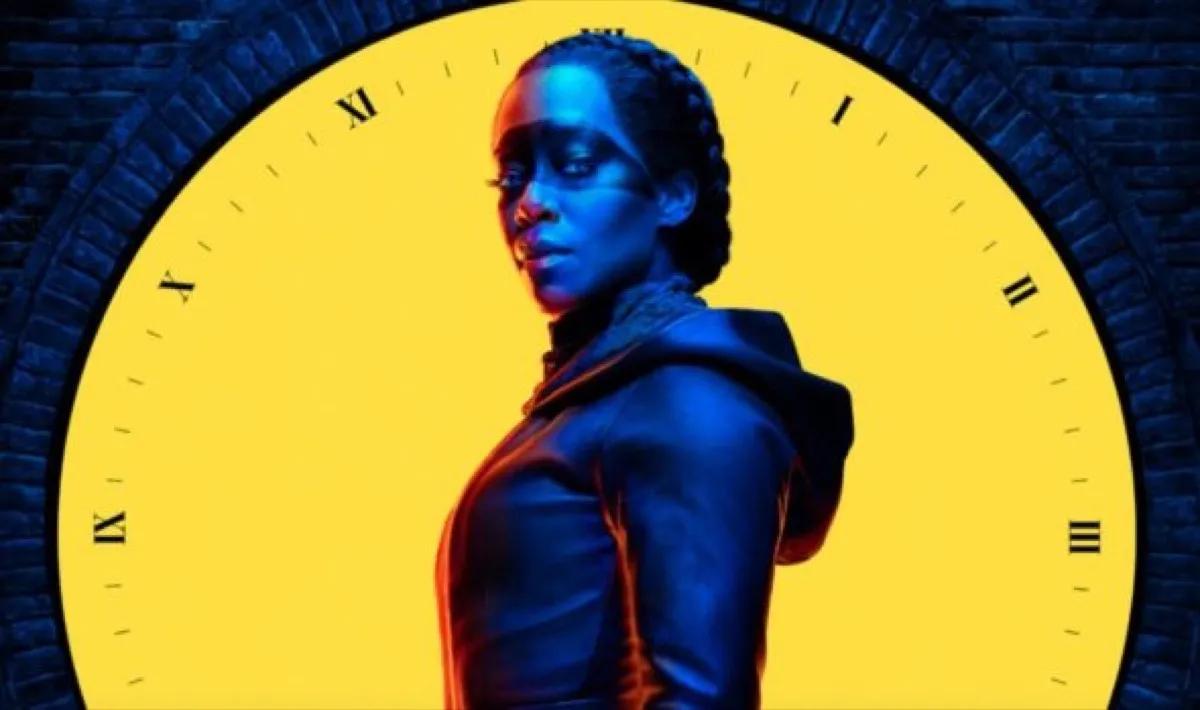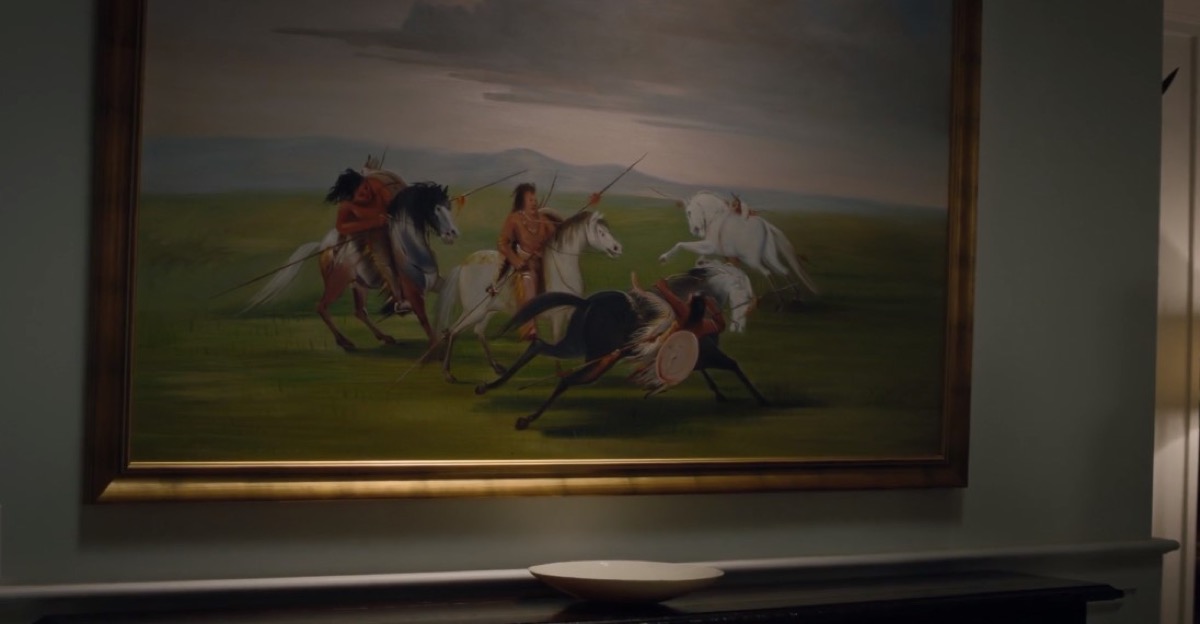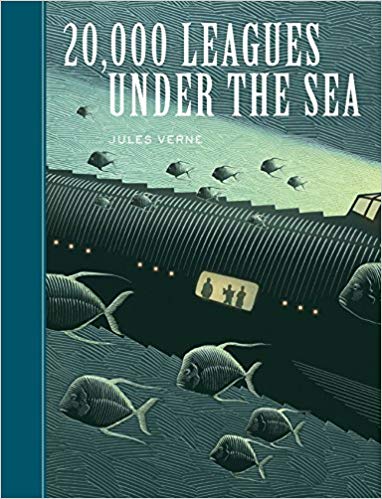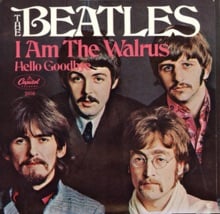Any time a TV show uses allusions for episode titles, I get inordinately excited. Did you know that every episode of Desperate Housewives is named after a Sondheim song or lyric? So, my latest obsession is HBO’s Watchmen. While not every episode title is a recognizable reference, most are, and they seem to provide clues about the themes and plot of each episode.
Since Watchmen is going rogue with regards to Alan Moore and Dave Gibbons’ source material, we might as well turn to the episode titles to try to figure out what the heck is going on, but between the cultural references in the episode titles and all of Watchmen’s history lessons, this show is an education in and of itself.
Episode 1, “It’s Summer and We’re Running out of Ice”
The title of the pilot episode is named after a lyric in the song “Pore Jud Is Daid” from the musical Oklahoma!, which was referenced multiple times during the episode and played over the end credits. This specific line is in reference to how dead bodies would have been preserved before burial. In the song’s narrative, the “hero” Curly is attempting to convince the “villain” Jud to kill himself (don’t get me started on how problematic this scene is) by having him imagine how beautiful his funeral would be—and then throws in this snide jab at the end about how the ice would melt and his body would start to rot anyway.
As for Watchmen, it’s a fitting lyric for the episode that starts the series off, because it’s a good metaphor for a catalyst in storytelling. Sometimes, crime heats up and we run out of the metaphorical ice necessary to keep it under control. That’s what happens in the episode: tensions between the cops and white supremacist terrorist group the Seventh Kavalry come to a head, and the Chief of police ends up dead.
Episode 2, “Martial Feats of Comanche Horsemanship”
This is a reference to George Catlin’s painting Comanche Feats of Horsemanship, which is also featured in the episode. The painting, which depicts a Comanche battle strategy that intrigued Catlin, is important to Watchmen’s ongoing investigation into America’s racist history. Catlin’s obsession with depicting Native American tribes in his art is often seen as intrusive and appropriating, not “reverent” of indigenous people, as he claimed.
In the episode, Angela discovers a KKK robe in the Chief’s home, which, you know, changes her perception of her deceased friend and boss in a major way. The fact that he had this racist painting hanging in his home should have been a clue.
Episode 3, “She Was Killed By Space Junk”
There is literal space junk that falls from the sky in this episode, but this is a reference to the Devo song “Space Junk,” which begins like this:
She was walking, all alone
Down the street, in the alley
Her name was Sally, I never touched her
She never saw it
When she was hit by, space junk
She was smashed by, space junk
She was killed by, space junk
It’s the perfect song to introduce Laurie from the original Watchmen, because her mother’s name was Sally Jupiter!
Episode 4, “If You Don’t Like My Story, Write Your Own”
That’s a quote from Chinua Achebe’s Things Fall Apart. If you didn’t read Achebe’s novel in High School, it depicts the oppressive spread of Imperialism and colonization of Nigeria in the 19th century. In Episode 4, Angela spoils the ending of Things Fall Apart to get back at Cal.
Episode 5, “Little Fear Of Lightning”
The longer version of this quote, from 20,000 Leagues Under The Sea by Jules Verne, reads that “If there were no thunder, men would have little fear of lightning.” What we don’t know can’t hurt us, right? In the episode, Looking Glass learns something that he didn’t know, and it definitely hurts him. He’s just trying to figure out the truth, but he can’t fear the lightning without first hearing the thunder.
Episode 6, “This Extraordinary Being”
This one is less clear! It could be referring to a Maori legend about a man who became a fish. It could be referring to writings about the Middle Period of Dighton Rock History and the mysterious glyphs found on Dighton Rock. It could simply be referring to Doctor Manhattan, an extraordinary being on Watchmen in and of himself.
Episode 7, “An Almost Religious Awe”
Even trickier than “this extraordinary being” is “an almost religious awe,” which is a more common phrase than you might think. I promise, we’ll get back to fun references soon.
Episode 8, “A God Walks Into a Bar”
Part of me wishes that this were a Leftovers reference. (In Watchmen series creator Damon Lindelof’s previous series, a man claiming to be God rolls up to a boat party ready to give out answers.) This is most likely just referencing the “a guy walks into a bar” joke structure. Joy Williams’s Pulitzer prize finalist Ninety-Nine Stories of God uses that joke structure to explore religion, but that book was published in 2018, so it’s most likely a coincidence.
Episode 9, “See How They Fly”
Finally, the finale title is 100% a lyric from “I Am the Walrus,” by the Beatles:
I am he as you are he as you are me
And we are all together
See how they run like pigs from a gun
See how they fly
I’m crying
Does that confirm that Watchmen does not take place in the Yesterday universe, and that the Beatles are a thing!? Let’s hope, please. Anyway, this is a wild song in any context. There’s a dramatic reading from King Lear in some versions, as well as the inspiration from Lewis Carroll’s Alice in Wonderland. The lyric in question is in turn referencing “see how they run” from the nursery rhyme “Three Blind Mice,” which the Beatles also reference in the song “Lady Madonna.”
At the end of Watchmen, will the world all be nonsense, like “I Am The Walrus”? The way things are going, it honestly might be.
(featured image: HBO)
Want more stories like this? Become a subscriber and support the site!
—The Mary Sue has a strict comment policy that forbids, but is not limited to, personal insults toward anyone, hate speech, and trolling.—












Published: Nov 25, 2019 10:21 am